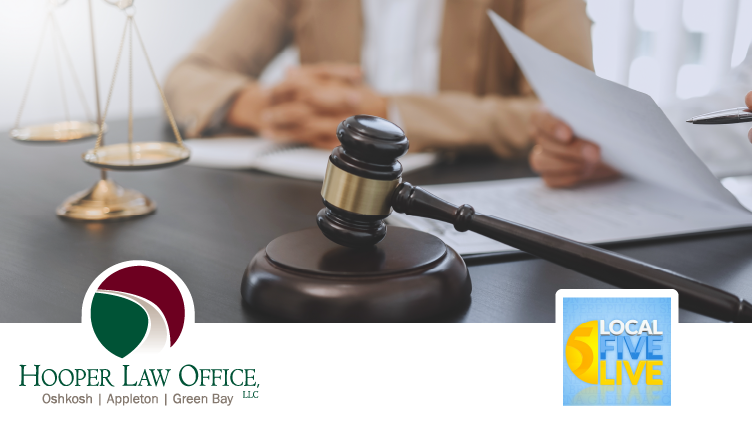
Will or Trust - Which is right for you?
Do you know the difference between a Will and a Trust and which one you will need to plan for your family’s future? Attorney Peter B. Harbach appeared on WFRV's Local 5 Live to discuss the differences between Wills and Trusts, and which of those you might need.
Lisa Malak: Welcome back, do you know the difference between a Will and a Trust or maybe which one you'll need, when planning your family's future.
Millaine Wells: We are talking about it today with Attorney Peter Harbach from Hooper law office. Good morning Peter.
Peter Harbach: Good Morning.
Millaine Wells: Let's start with that question of what is the difference between a Will and a Trust?
Peter Harbach: I get that one all the time. So Wills, in a nutshell, are instructions to the Probate court. So a lot of people think that if they have a Will their family's not in the court system. But in reality, Wills are really just instructions to the court system about what somebody does or doesn't want, and who they should have in charge of their property and where they want that property to go. Trusts, on the other hand, are legal agreements that don't just take them [audio glitch] during somebody's lifetime, and they're non Probate transfers, meaning that the family can avoid the Probate system, because the Trust can say, Oh, this is how I want stuff to work during my lifetime, and also where I wanted to go after I pass away.
Lisa Malak: So how much money should you have before you consider setting up a Will or a Trust?
Peter Harbach: That's another question. That's real common. And, you know, there's no real bright line rule. And I find most of the things that I've read in the past, they talk about, you need to have X amount of dollars to consider a Trust or X amount of dollars to consider a Will. Usually, that's just marketing. And you need to look at the source of who's writing that stuff. Estate Planning is covering everything that somebody has ever accumulated. So some kind of planning is appropriate for everybody, no matter how much money they have. But it really boils down to what they're trying to accomplish as to what tools are going to be best for them.
Millaine Wells: How do we determine which is best for us?
Peter Harbach: So, this is one of those things that you're really best off talking to an attorney that's experienced in Estate Panning to figure out. I'd liken it to, you know, if you're sick, yeah, you can start looking stuff up on WebMD. But that's not really a substitute to going to talk to a doctor. Attorneys, It's the same way when it comes to the Estate Plan. Don't try and self-diagnose this stuff before the role of the estate planning attorney is to talk about somebody's individual needs, what their wishes are, what their concerns are, and walk them through their different options so that they know they're making a good decision.
Lisa Malak: So that really is the first step right, in how we set up a Will or a Trust.
Peter Harbach: Yeah, absolutely. Talk to an Attorney. Go through everything that you're concerned about. Let them make suggestions. And then make your choices from there once you're educated about it. And you're not just reading articles online. Because one, one thing you might read would conflict with another thing that somebody else wanted to post online. And as everybody knows that, there's no vetting online, anybody can put up anything.
Lisa Malak: Yeah, also true.
Millaine Wells: Well, this is a source you can trust.
CTA: Learn More: Attend a Complimentary Online Seminar



